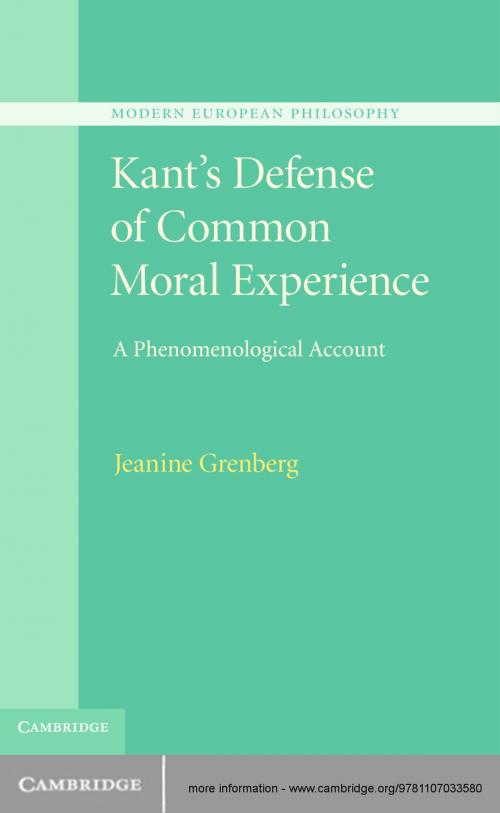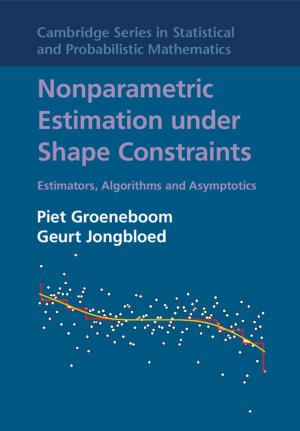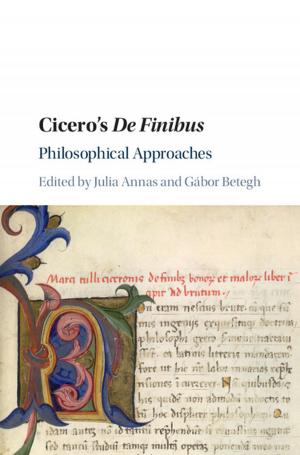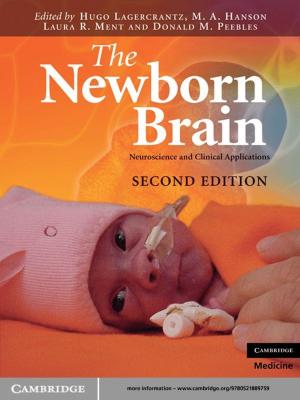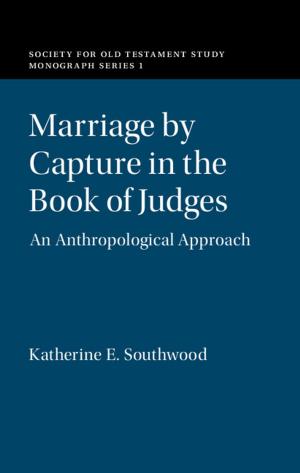Kant's Defense of Common Moral Experience
A Phenomenological Account
Nonfiction, Religion & Spirituality, Philosophy, Modern, History, Criticism, & Surveys| Author: | Jeanine Grenberg | ISBN: | 9781107272583 |
| Publisher: | Cambridge University Press | Publication: | July 18, 2013 |
| Imprint: | Cambridge University Press | Language: | English |
| Author: | Jeanine Grenberg |
| ISBN: | 9781107272583 |
| Publisher: | Cambridge University Press |
| Publication: | July 18, 2013 |
| Imprint: | Cambridge University Press |
| Language: | English |
In this book, Jeanine Grenberg argues that everything important about Kant's moral philosophy emerges from careful reflection upon the common human moral experience of the conflict between happiness and morality. Through careful readings of both the Groundwork and the Critique of Practical Reason, Grenberg shows that Kant, typically thought to be an overly technical moral philosopher, in fact is a vigorous defender of the common person's first-personal encounter with moral demands. Grenberg uncovers a notion of phenomenological experience in Kant's account of the Fact of Reason, develops a new a reading of the Fact, and grants a moral epistemic role for feeling in grounding Kant's a priori morality. The book thus challenges readings which attribute only a motivational role to feeling; and Fichtean readings which violate Kant's commitments to the limits of reason. This study will be valuable to students and scholars engaged in Kant studies.
In this book, Jeanine Grenberg argues that everything important about Kant's moral philosophy emerges from careful reflection upon the common human moral experience of the conflict between happiness and morality. Through careful readings of both the Groundwork and the Critique of Practical Reason, Grenberg shows that Kant, typically thought to be an overly technical moral philosopher, in fact is a vigorous defender of the common person's first-personal encounter with moral demands. Grenberg uncovers a notion of phenomenological experience in Kant's account of the Fact of Reason, develops a new a reading of the Fact, and grants a moral epistemic role for feeling in grounding Kant's a priori morality. The book thus challenges readings which attribute only a motivational role to feeling; and Fichtean readings which violate Kant's commitments to the limits of reason. This study will be valuable to students and scholars engaged in Kant studies.
